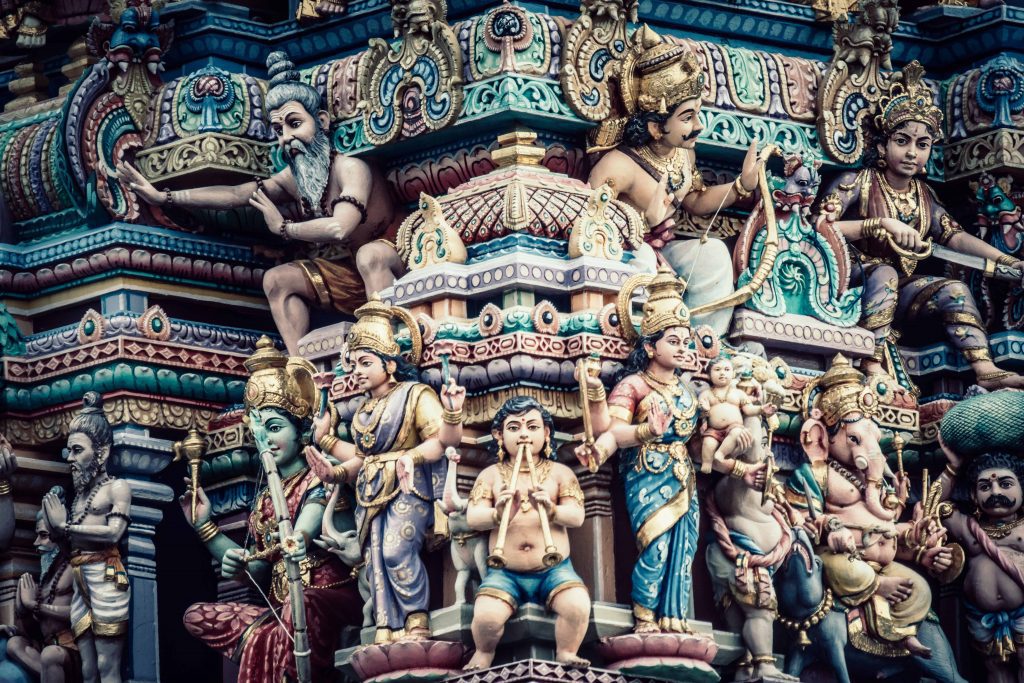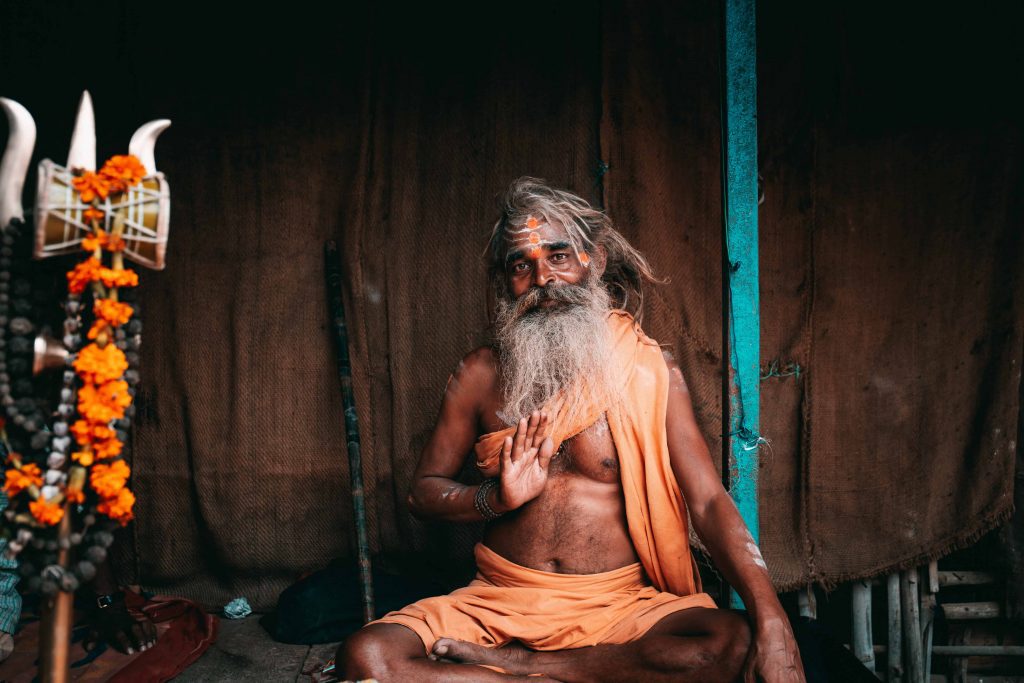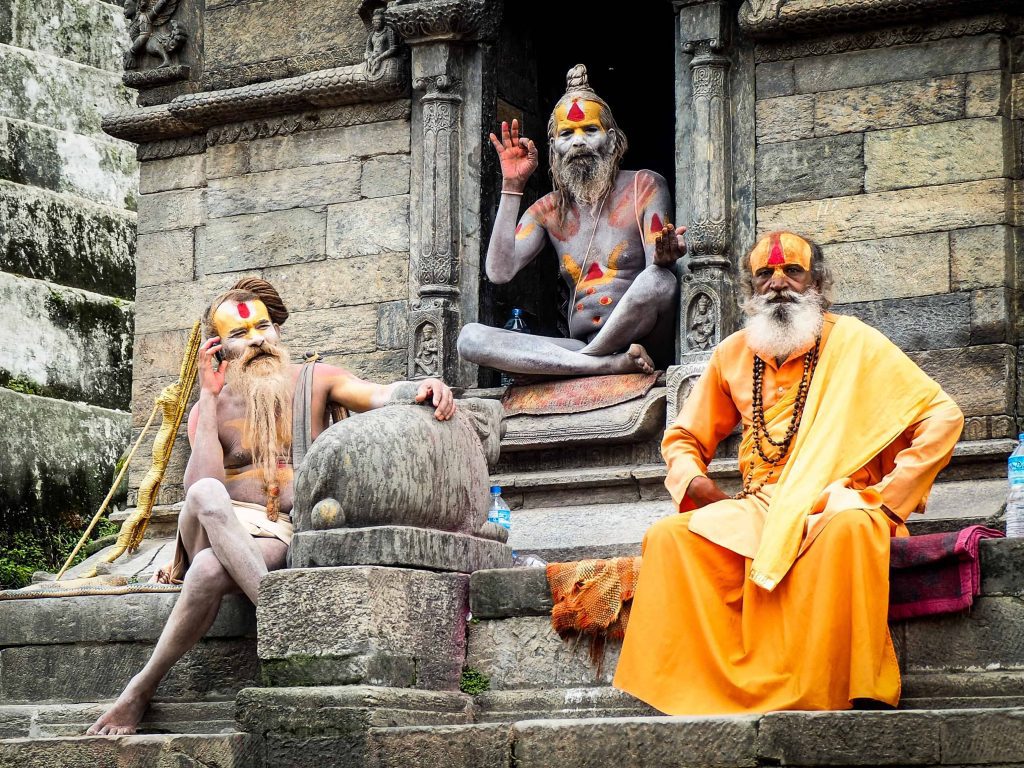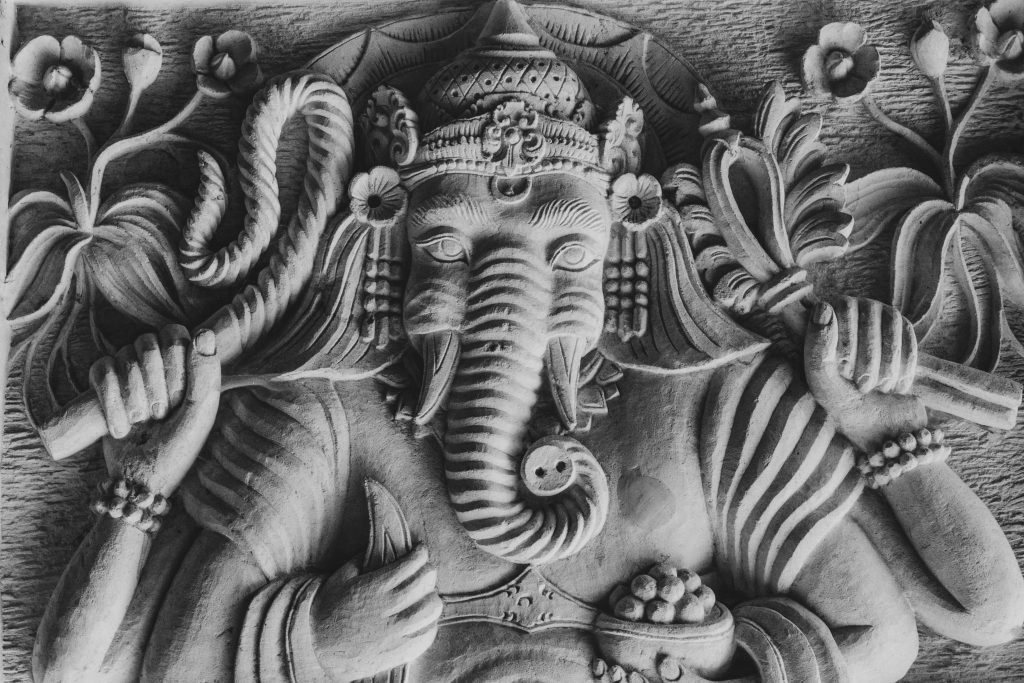
I do know the meaning of the term secularism. Yet I do not understand it. Of course, the dictionary meaning is absolutely different. There was a time when people were talking about the term secularism, they were about the simply religious harmony. Slowly did it change its colour. Then, secularism ended up being a lip sympathy to the minorities. Then again, slowly the colours changed. In the end, secularism ended up being merely a tool of appeasement of minorities. Then, secularism changed its colour again. It shifted its focus only on to the Muslim vote bank in the name of secularism. Then again, did the secularism change its colour. Now, secularism means hating and demeaning Hindus.
If a scholar were to refute the very existence of Allah, it would be called Islamophobia. An analogous situation exists in the way, an attitude gets classified as anti-Semitic. Hindus should be alarmed by the existence of a double standard in Western academics because the same sensitivity and Adhikaar to speak for our tradition is not granted to Hindus. While, one should always be vigilant for traces of totalitarianism in any ideology or movement the obsession with fascism in the anti-Hindu rhetoric of the secularists is not the product of an analysis of the data, but of their own political compulsions.
Hinduism is one of the world’s oldest religious traditions. From its emphasis on non-violence and respect for all living entities to its introduction of practices such as yoga and meditation. Hinduism have had a tremendous impact on the world. It is worth noting here that Hindus – a term somewhat loosely employed to denote people who practice a lived religion of varied customs and traditions and yet subscribe to larger Hindu identity – form around 80% of the population. If Hindus were not inherently secular and pluralistic, India’s multi-faith mosaic would have been impossible.

Here, are some mainstream words that describe real attitudes that perpetuate discrimination, suffering, abuse and sometimes death, on innocent people for no fault of their own: Misogyny, Racism, Xenophobia, Homophobia, Misanthropy, Islamophobia, Casteism. Now, here are some made-up words describing fictitious concepts created in the service of a larger made-up world: Jabberwocky, Quidditch, Hinduphobia. Those first real words name attitudes marinated in a virulent trifecta of fear, hatred or prejudice and contempt. They come from active revulsion towards a particular community and the individuals in it. The term ‘Hinduphobia’, on the other hand, is a facsimile of such an attitude. It is the charge of such emotion, made from such emotion. It is a word looking for a target, handy for demonising critics.
Hinduphobia is fear and hate of Hindus and Hinduism. It is a form of violence largely perpetrated against the largest surviving group is indigenous people and their continuous culture. Hinduphobia includes physical, emotional, psychological, economic and social abuse. It includes victim shaming, silencing and overt denial of centuries of atrocities against Hindus that continue today. It includes cultural and ethnic genocide, epistemicide and the misappropriation of Hindu material and intangible cultural heritage. Hinduphobia is calling Hindus curry munching pagans, who are superstitious, backward and worship weird gods. Outright lying such as the use of Hindu terror and smearing, portray Hindus and Hinduism in a negative light.
Interestingly, there is no official definition to offer about Hinduphobia. The word doesn’t simply exist and therefore, it is also a negation of the concept itself. So, while Islamophobia, it would seem is a very real ‘thing’ – that is Muslims are unjustly portrayed and projected – the absence of a similar term to denote the bias, prejudice and unreasonable dislike against Hindus implies that Hinduphobia is a fictitious concept – or that’s what the prevalent socio-political discourse would have us believe.

The idea of anti- Hindu Sentiment, a niche school of thought before the 2014 general election campaign, is now an engine of the Hindu Rights cry of aggrievement. It’s a useful double-edged sword, both a potent emotional binder for insecure Hindus seeking more social and political power and a way of creating opponents against whom this Hindu nation can unite. The spread of inaccurate and malicious content often taught that the deities Hindus worship are evil, demonic figures and that Hindu beliefs and practices are backward, nonsensical and morally degrading. Such portrayals are a manifestation of bigotry and Hinduphobia and unfortunately, lead to socially created and accepted constructs that view Hindus and Hinduism as inferior.
The charge of Hinduphobia holds that people who criticise the fundamental Hindu right-wing, do so not because they oppose its sociopolitical positions and ramifications, but because they abhor the Hindu Dharma and Hindu individuals. Defaming Hindu Dharma for the religious benefits by pointing out its limitations and forgetting the flawed concepts of the religions itself is also Hinduphobia. Wannabe liberals don’t know the basics; smart liberals suffer from Hinduphobia. And, former refers to the latter for everything. As a result, liberal Indians detest Hinduism.
Our history books haven’t been corrected, Sanskrit isn’t mainstream, we didn’t get the Ram Mandir we deserve easily – the cabal of left-liberals is getting stronger by the day. They are influencers, have the capability of brainwashing youngsters, have a skewed definition of secularism, believe Hinduism is regressive and peddle lies. It is the same gang which believes hijaab is choice and sindoor is regressive. In fact, both are a part of patriarchal society.

Probably, people who fail to see the ground reality in India, should not try to malign India by stating the idea of India as the Hindu Nation is accepted by the majority of liberals. In a country, where the majority is struggling to get their basic religious liberties, who face interfered by the liberals. The same – liberal, who are so-called Messiah’s of freedom of speech, are nowhere to be found when the civil liberties are being suppressed for Hindus. Even in a predominantly Hindu country, like India, where minority appeasement politics has crossed all its limits and Hindus are being slaughtered, just like the cows.
I ask you, what is wrong when people raise their voice in concern? People may have possibly witnessed and experience atrocities on a first-hand level. However, people sitting in the safety of their home and offices will unfairly judge them, based on knowledge gained solely from watching the News, reading articles and baseless social media reports. In my opinion, it is better to be informed conservative, than a blindly obedient liberal, led by the nose.
Media is one strong pillar that intentionally or unintentionally supports anti-Hindu Sentiments. There have been noticed two trends so far in media coverage of Hindus; the first is the over-representation of the Hindu Nationalism or Faith and Powernclaim common in academia and media today, and the second is the frequent association of Hinduism with crime, violence and suffering, either as an explicitly casual claim or just by casual mention. It sounds strange. There is nothing to fear Hinduism or Hindus. Nonviolence is one of the basic tenets of Hinduism. A few pseudo-Hindus may indulge in violence. Unfortunately, non-Hindu religious people are preaching hatred for a long time by stamping Hindus as enemies of other religions. But Hinduism is existing effortlessly, this stubborn nature against the shrinking of our faith towards a nameless and unguarded faith is probably unnerving those who really are trying to destabilize Hinduism.

While Hinduphobia is a psychological affliction, countering it with Hinduphilia is hardly the answer. Secularism is not top-down but bottom-up. No number of laws can guarantee religious tolerance as the examples of France, Belgium and the United States demonstrate. It is the inborn secularism of Hindus that makes India secular. It is common to paint a distaste for militant assertions of religious and social dominance as a ‘hatred of Hindu symbols and values and traditions’. In other words, it is easier to accuse people of hate and dismiss them entirely, than to admit that they have a point and engage with their arguments.
Hatred and oppression by any name and in any context must be exposed and condemned. Hinduphobia is every bit as ugly and dangerous as anti-Semitism or racism. We need to understand Hinduphobia as not just a media phenomenon, but a real-world problem, a political phenomenon. At the moment though, our society is resisting that change intensely, and by resorting to ever more increasing denial and dehumanisation. This is violence and it must end.
If 1.3 billion people are worried about their voice, the problem is with the voice, not the medium and it would be wise to keep Hinduism out of it because India’s voice is rational and its gearbox is democratic. If you need others to define you, then who are you ‘ Read the Bhagwan Gita where knowledge is unfurled in a battlefield, a metaphor for life, a spectacular stage for dialogue, where duty is saluted and vengeance is discarded’. Hinduism can be Raudra but not Krodha.